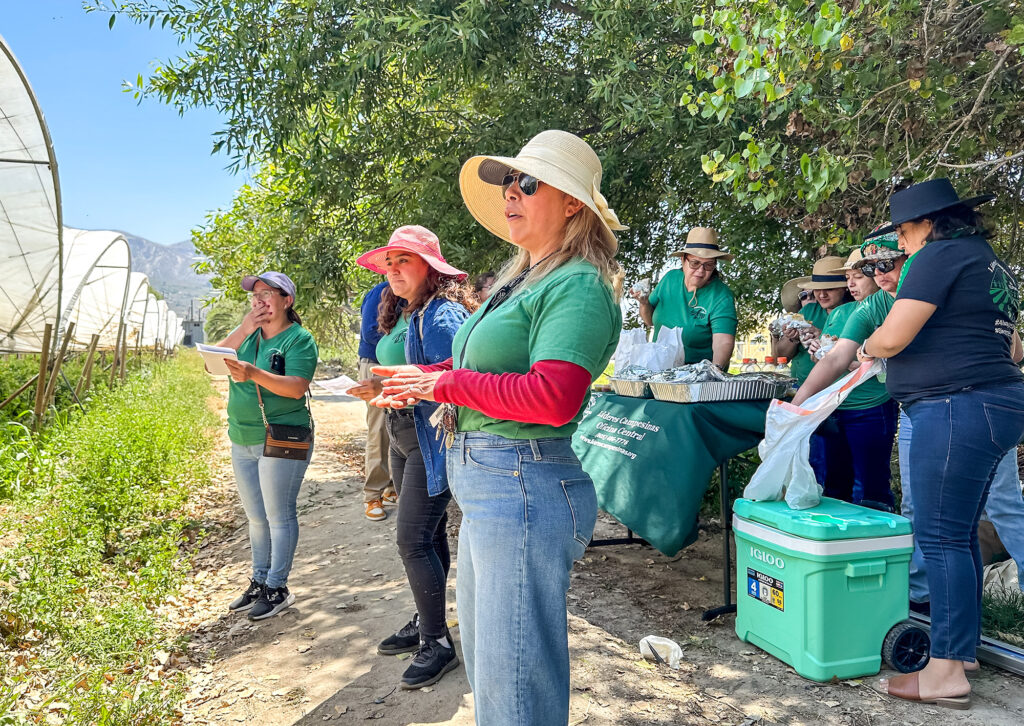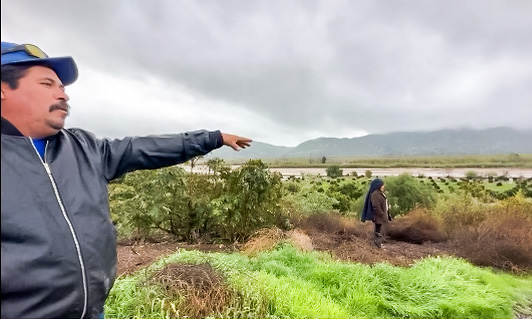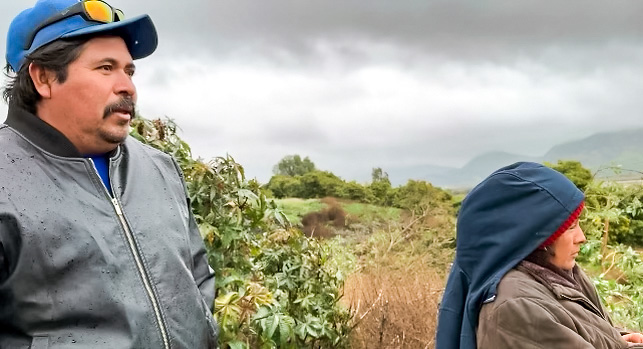Unprecedented California flooding deals farmworkers another blow, state makes aid available

SACRAMENTO, Calif. – California’s unprecedented winter storms served up yet another hardship for farmworkers already dealing with the lingering impacts of COVID-19, years of drought and increasing heat.
In the first few months of 2023, California had already seen twice as much precipitation than in 2021-2022, according to the California Department of Water Resources.
The state was hit with 31 atmospheric rivers from October to March. This weather phenomenon carries moisture through the atmosphere and then releases heavy snow and rain when it reaches land. This constant rain and snow melt inundated areas in the Central Valley, and Pajaro and Oxnard along the California coast. In Kings County alone, flood waters revived long-dead Tulare Lake, covering an area nearly the size of Lake Tahoe. The land is mostly agricultural which provides jobs for many.
The flooding left farmworkers with little to no work, no income, and struggling to find alternate ways to keep their families fed.
Juanita Ontiveros, a staff member with the California Rural Legal Assistance Foundation (CRLAF) said farmworkers already have three months without work due to the change in growing seasons. Flooded fields contributed to a longer period of no work.

Only farmworkers who are legally allowed to work in the U.S. could rely on unemployment checks or federally-funded assistance to help them get through those periods. Undocumented workers would have to ration from their check while work was high so when the three-month period would arrive, they would have something to keep themselves and their families afloat.
Ontiveros said they expected normal seasonal rain and delays from flooding, but nowhere near as much as what pummeled the state.
With the ground oversaturated, floodwater did not recede from the fields as expected, and farmworkers were unable to travel to seek more work because of damage to the roads or the lack of money for gas.
Ontiveros said there was a lot of frustration: “The climate change was like a second attack towards them, following the COVID pandemic,” she said.
During that time, farmworkers had to risk their lives in order to feed the nation.
According to Ontiveros, no income meant they struggled to pay rent and some were forced to relocate to look for work elsewhere to make ends meet.
Irene De Barraicua, director of operations and communications at Líderes Campesinas said the main problem she is seeing is a lot of displacement because of the historic flooding, specifically in the areas of Pajaro and Oxnard in the California coast.
“They (farmworkers) were without food, without clothing because of so many homes that were destroyed,” she said.
Now, De Barraicua and her team are pushing for Senate Bill 227 ‘Safety Net for All,’ which allows undocumented individuals to receive unemployment benefits. Supporters of the bill had been trying to get it signed by Gov. Gavin Newsom for three years but have been unsuccessful.

Newsom vetoed the bill this year for the third time and did not included funding for it in this year’s budget.
“The Coalition for the Safety Net for All was not very happy about that,” De Barraicua said. “It was a way for [the Governor] to say ‘no’ to employment benefits.”
Newsom’s office did not respond to a request for comment.
However, the Democratic governor did allocate $95 million for those affected by the floods and are undocumented. Under the Storm Assistance for Immigrants Project, which became available in June, a household can get up to $4,500 in aid. This program is available in a first come, first serve basis.
De Barraicua, with Líderes Campesinas, suggested that funding comes as consolation prize for the governor not passing SB227.
Now, farmworkers are looking for ways to earn a living through the disaster that might linger for years. The last time Tulare Lake made a significant appearance following severe flooding in 1983, local farmers said it took three years to dry out.
Laura De la Garza Garcia is a junior at California State University-Sacramento. She currently serves as a news producer for Univision 19 and hopes to become a bilingual anchor and reporter. Reach out to her on Twitter at @lauraaale__.